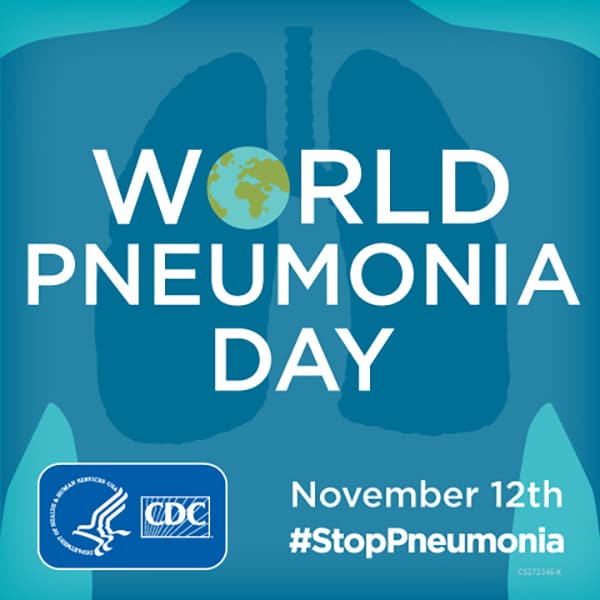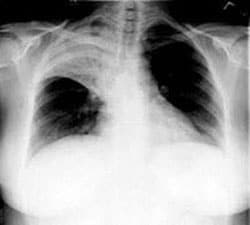
Pneumococcal Recommendations for Older Adults
CDC recommends two pneumococcal vaccines for adults 65 years or older.
- Get a dose of the pneumococcal conjugate vaccine (PCV13) first. Then get a dose of the pneumococcal polysaccharide vaccine (PPSV23) at least 1 year later.
- If you’ve already received PPSV23, get PCV13 at least 1 year after receipt of the most recent PPSV23 dose.
- If you’ve already received a dose of PCV13 at a younger age, CDC does not recommend another dose.

CDC recommends two pneumococcal vaccines for adults 65 years or older.
Protect Your Health with These Healthy Living Practices
Try to stay away from sick people. If you are sick, stay away from others as much as possible to keep from getting them sick. You can also help prevent respiratory infections by:
- Washing your hands regularly
- Cleaning surfaces that are touched a lot
- Coughing or sneezing into a tissue or into your elbow or sleeve
- Limiting contact with cigarette smoke or quitting smoking
- Managing ongoing medical conditions (like asthma, diabetes, or heart disease)
Pneumonia Affects the Young and Old

Chest x-ray of an adult patient with pneumonia
Some People Are More Likely to Get Pneumonia
- Adults 65 years or older
- Children younger than 5 years old
- People who have ongoing medical conditions
- People who smoke cigarettes
Causes and Types of Pneumonia
Viruses, bacteria, and fungi can all cause pneumonia. In the United States, common causes of viral pneumonia are influenza and respiratory syncytial virus (RSV). A common cause of bacterial pneumonia is Streptococcus pneumoniae (pneumococcus). However, clinicians are not always able to find out which germ caused someone to get sick with pneumonia.
Community-acquired pneumonia is when someone develops pneumonia in the community (not in a hospital). Healthcare-associated pneumonia is when someone develops pneumonia during or following a stay in a healthcare facility. Healthcare facilities include hospitals, long-term care facilities, and dialysis centers. Ventilator-associated pneumonia is when someone gets pneumonia after being on a ventilator, a machine that supports breathing. The bacteria and viruses that most commonly cause pneumonia in the community are different from those in healthcare settings.
See causes of pneumonia.
Podcasts
- Prevent Pneumonia (CDC Featured Podcasts) [00:04:17 minutes]
This podcast explains what pneumonia is, its symptoms, and how to prevent it. - Respiratory Synctial Virus (RSV) [00:04:22 minutes]
In this podcast, Dr. Eileen Schneider talks about a common cause of respiratory illness in young children.





















.png)












No hay comentarios:
Publicar un comentario